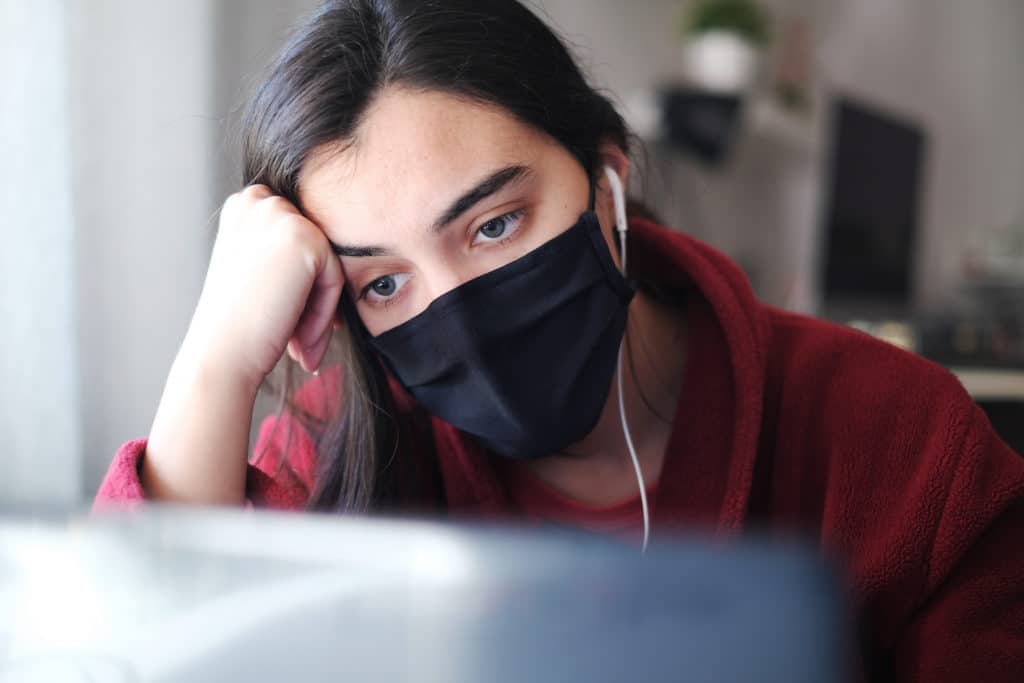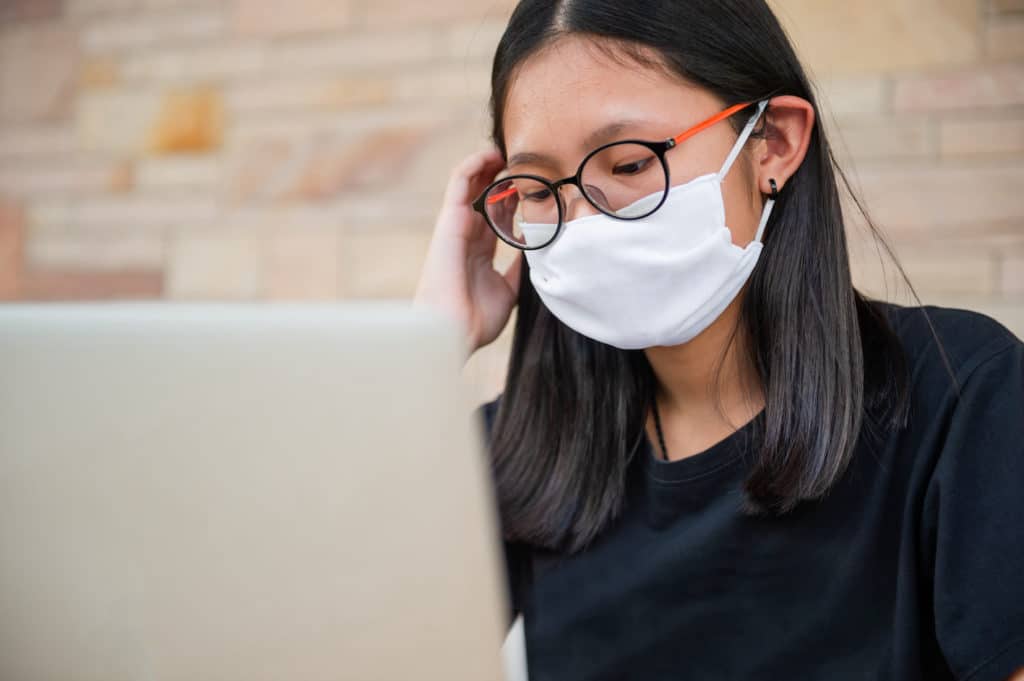Managing COVID-19 Related Anxiety

As the last state to open up our borders and experience high levels of COVID-19, one benefit we are afforded is the ability to draw on the experiences of those who have already faced the challenge of COVID-19 in the community.
We know that COVID-19 has raised stress and anxiety levels among teens and tweens. Your daughter or family may be experiencing this now. Other factors might also compound this in her life, such as starting a new school or starting Years 11 or 12 courses, for example. Conversely, your daughter might appear completely unaffected, and it is important to acknowledge that young people respond to stressful events in very different ways.

Our College psychologists have put together some quick tips for managing anxiety in our girls in relation to COVID-19.
1. Rely on routines
Routines help provide structure and a sense of safety, which is particularly important during these unpredictable times. Stick to a regular sleeping, eating and activity routine, and consider creating new routines within your family to strengthen the sense of connection, such as a Friday movie or games night.
2. Avoid too much reassurance
Avoid getting into a cycle of providing too much reassurance, as students can learn to rely too heavily on this. When a parent cannot give them complete reassurance, their anxiety can worsen. Instead, reassure your daughter that she can cope and refocus her on the things she is doing to keep herself safe so that she develops confidence in her own ability to manage challenging situations.
3. Model calm responses
our children are watching every response that we have. The reactions of adults around them will affect their feelings of safety and tolerance of uncertainty. Staying calm when discussing COVID – 19 will also help your daughter feel calm.
4. Be smart about what information you absorb and how much of it.
We are constantly exposed to lots of information about Covid-19, so it is important to ensure these sources are reliable and factual. Be mindful of the amount of time your daughter engages with this, and if you notice that, it increases her worry.
5. Be present and develop skills to stay in the here and now
If you notice that your daughter is overthinking and getting caught up with unhelpful “what ifs”, help her reframe these thoughts and refocus her on dealing with the here and now. What is happening in the present moment? What does she need to focus on today?
You can download our infographic of the 5 Tips from our psychologists here. Many resources have been developed to support students and families. You can find some of these links below.
Reachout
Kids Help Line
Raising Children
If you would like to learn more about supporting your daughter, we are holding a webinar on Managing COVID-19 Related Anxiety on Wednesday 9 March with our College psychologists, Dr Stephanie Wade and Dr Kimberlee Burrows. Please click here to register for the webinar or the recording.

The Power of Expectations in Shaping Student Success – Jennifer Oaten
Discover the transformative impact of expectations on student success. Learn how belief shapes outcomes in education and beyond.

Weekly Wrap Up: Term 2, Week 1, 2024
Term 2 has kicked off with a bang! We enjoyed the Year 11 Father-Daughter evening, celebrated Earth Day, and welcomed Dr. Mark Williams.

Inspiring Change: Earth Day 2024
Our Earth Day celebration this week was a powerful reminder of our collective responsibility to protect our planet for future generations.
- Featured
Author: Santa Maria College
Santa Maria College is a vibrant girls school with a growing local presence and reputation. Our Mission is to educate young Mercy women who act with courage and compassion to enrich our world. Santa Maria College is located in Attadale in Western Australia, 16 km from the Perth CBD. We offer a Catholic education for girls in Years 5 – 12 and have 1300 students, including 152 boarders.






